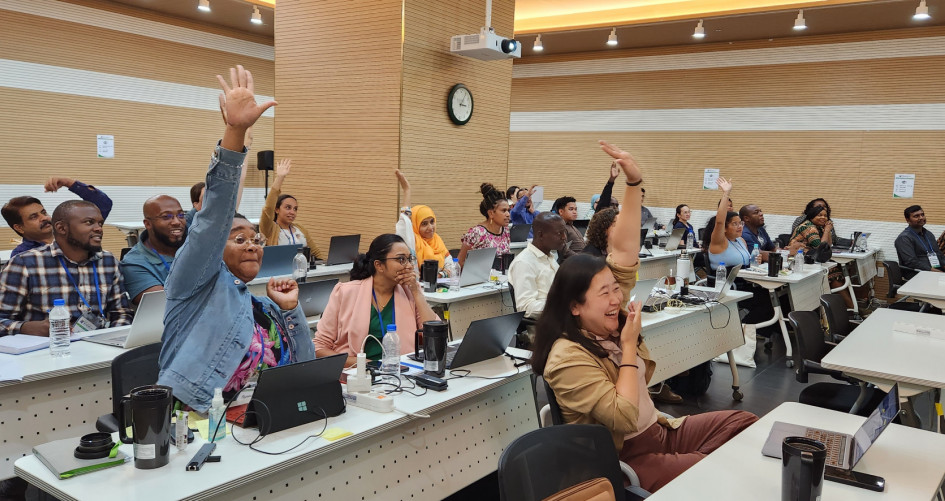UN Climate Change News, 8 August 2023 – Following intense training in the Republic of Korea last month, a group of 26 national experts from developing countries has been equipped with the knowledge and skills needed to enhance their ability to prepare national greenhouse gas inventories.
Such inventories are an important component of biennial transparency reports (BTRs) under the Paris Agreement, due at the latest by December 2024.
The comprehensive three-week training course was a collaborative effort between the UN Climate Change secretariat and the Greenhouse Gas Inventory & Research Center of Korea (GIR).
Speaking at the opening of the event, Jigme, Manager of the Transparency Division of the UN Climate Change secretariat noted that governments are now at a critical juncture for the transparency of climate action.
“Transparency is one of the core commitments embedded in the UN Framework Convention on Climate Change and the Paris Agreement. It builds mutual trust and confidence among Parties that the climate action commitments and pledges that they put forward are being delivered on,” he said.
As part of the new BTRs, all countries will provide a national inventory report of their greenhouse gas emissions. Capacity-building and technical support for developing countries is crucial for this effort.
Jeong Eun-hae, President of GIR, in welcoming the trainees, said: “Building upon the existing Measurement, Reporting, and Verification (MRV) arrangements under the Convention, and moving towards the implementation of the Enhanced Transparency Framework under the Paris Agreement, it is imperative for the global community to make joint efforts to reduce greenhouse gas by managing their national greenhouse gas inventories.”
“Having recognized such international commitment, the partnership between GIR and the UN Climate Change secretariat has significantly contributed to enhanced reporting capabilities of developing countries,” she added.
It is noteworthy that among the participants, 46% were from Asia-Pacific, 23% from Latin America and the Caribbean, and 31% from Africa regions. In total, 58% of the participants were women.
The trainees were provided with knowledge and insights on low carbon development, transparency arrangements, and the Intergovernmental Panel on Climate Change (IPCC) reporting requirements.
Furthermore, the agenda covered methodologies and tools for greenhouse gas emission calculation and projection for energy and waste, agriculture, forestry and other land use (AFOLU), and industrial processes and product use (IPPU) sectors.
Speakers and lectures included experts from the IPCC, ICF International, George Mason University, GIR, the Greenhouse Gas Management Institute, Hallym University, Seoul Energy Corporation, Sookmyeong Women's University and the UN Climate Change secretariat.
About the UNFCCC-GIR-CASTT training programme
The UNFCCC-GIR-CASTT training programme aims to equip national experts from developing countries with the knowledge and tools necessary for preparing greenhouse gas inventories for transparency reporting. In total, 196 trainees representing 86 developing countries have successfully completed the UNFCCC-GIR-CASTT training programme between 2017 and 2023. The 13th professional training programme on greenhouse gas inventories took place in Seoul from 10 to 28 July.
More information about UNFCCC-GIR-CASTT and other CASTT training programmes.
Enhancing National Capabilities to Track Progress Against Climate Change
8 August 2023
Article
